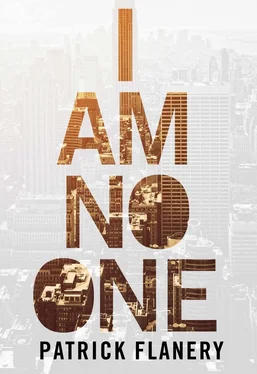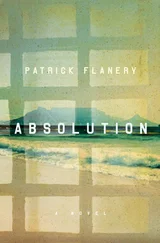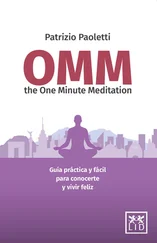By chance, I saw Fadia the following day in Brasenose Lane, as I was cycling into College from home. It was still dark enough in the mid-morning January gloom that I had turned on my bicycle light so the yellow beam cut through the fog and fell against the outline of her body. She was wearing a long black coat with a white scarf trailing in folds and swags across her shoulders and down her back. Despite the cold and a sky that threatened to open, we both stopped, shifting our weight on the slick cobblestones.
‘Is everything okay with your family? I wanted to ask last night—’
She took a breath and blew it out in puffs of vapor. ‘I wish I could be there. I feel I should get on a plane, but I can’t. I mean I could, but my mother has forbidden me. Things are too uncertain for them. It’s very complicated, Jeremy, as I’m sure you can imagine.’
Somehow, during the course of her MPhil, we had graduated from her calling me Professor O’Keefe to using my first name. This was not so uncommon, some Fellows are happy to have undergraduates address them by their first names from the start. I had never made a policy myself, simply allowing individual students to speak to me in whatever way seemed appropriate to them, provided it was respectful, though disrespect is still a reasonably rare occurrence in an Oxford College. She said my name with that distinct French inflection she had, making me sound more like a Jérémie than a Jeremy, allowing me to imagine myself as a man louche yet soigné. By subtle measures, Fadia was already transforming my sense of my own self. I now see this as one of the first steps on the path I was following towards a more conscious attraction.
‘But are they safe? Your parents, I mean, and you have a brother?’ I knew she had a brother. We play at ignorance to appear less knowing, to act as if we have not already spent hours looking at her profile on various social media platforms, all of them public, open for anyone to see. I knew what music she liked, what films and books (the works of Edwar al-Kharrat, Ahdaf Soueif, and Amina Zaydan, Hélène Cixous, Frantz Fanon, and Jacques Derrida, but also Hilbig and Calvino, Poniatowska and Lispector), her pet passions (animal rights, democracy, freedom of speech, the overthrow of censorship, the environment, the rights of women and children, the fight against female genital mutilation, not to mention Monty Python and Asterix and Tintin). I knew all these things and had them circling behind my eyes as I pretended not to be certain whether or not she had a brother.
All at once, in that alleyway between Lincoln and Exeter, Fadia seemed to struggle against tears. Her eyes reddened, but she maintained her composure. I might have touched her upper arm or shoulder, trying to reassure her, and I remember suggesting she come to my rooms for a cup of tea instead of carrying on to the Bodleian, as had been her intention, for she seemed in no state to sit in the low wooden chairs of the Upper Reading Room, and I had sufficiently acculturated myself that I was now reasonably persuaded a cup of tea and a biscuit were a balm for most ailments. So she accompanied me back to College, through the lodge, across the front quad and up the staircase to the Senior Common Room, where I made us tea and collected some biscuits before we went back down the stairs and across to the Chapel Quad, climbing another staircase to the rooms I now occupied, overlooking a square of lawn so trim and green, even in winter, it seemed an act of gardening alchemy or artifice, a performance of life rather than life itself.
I remember the gray floorboards creaking under our weight as we sat across from each other by the fireplace, which had never been lit during my time. She put the cup and saucer on the coffee table and unwrapped herself, dropping the black coat and long white scarf on an empty chair, swinging her loose hair round to the front of her body. I no longer recall what she was wearing under the coat, but I imagine it was something like a creamy silk blouse and a black cashmere sweater and long tapered black wool trousers with black leather boots. As she progressed further into her graduate studies the glimmers of color I had seen in her wardrobe in earlier years began to disappear, giving way to a palette of grays, whites, ivories, and blacks, arranged in inventive permutations so that, in time, I would see her in a shirt or sweater I did not recognize even though it might have been part of her wardrobe for some months. She was nothing less than an agent of transformation, though in the beginning — that is the beginning of what became our stronger, more intimate attachment — I did not entirely appreciate how powerful this art could be.
The story of her family came out over that cup of tea on a dark January morning, how her father and uncle were high up in Egypt’s Ministry of the Interior, how her brother had worked for the same division but had now aligned himself instead with the Muslim Brotherhood, while her mother, Jeanne-Alice, born and raised in France, was, like Fadia, in favor of secular democracy. At that particular moment, it seemed as though such a hope was not naïve. It was her father, Khalid, and her uncle, Samir, who were the locus of Fadia’s concern. As close as they were to Mubarak, she worried about their safety.
‘They are talking about leaving the country and coming to London, which they could do, but it does not look good. I know what my father and uncle have been doing. I know, of course I know, that this government has been all wrong for a very long time. Why do you think my mother sent me abroad for school and university? She saw I could not stomach what was happening and I was going to continue to be a problem, an even bigger problem if I stayed. And now, Saif, he is also a problem. I have terrible visions of my parents trying to flee and getting caught by an angry crowd, finding themselves suddenly face to face with people who hate my father, or what he stands for, and with total justice they hate him, though I do not believe he is a bad man, and I fear that seeing him try to flee they would stop him and kill my parents, both my mother and father, and I can imagine how easily I might be in one of those crowds, how I might get carried along by the turmoil. I know Saif is out there, protesting and camping and he like others might surge forward at the sight of men like my father fleeing with their wives and find the rage ungovernable such that he, my own brother, might be a bone in the hand that pulls the trigger that kills my mother or the wrist of the hand that makes the knot that lynches my father. This is what I see when I walk past the gates of Trinity in the morning, when I open a book of German history, when I try to sleep at night in my College room on Museum Road, and it is what I see when I turn on the news and watch my people and my country, this people and country that feel both closer and further away from me than ever before, because I know them and yet now I do not know them, I’ve spent so much time in France and Britain that I have become French and British. I have to remind myself that I am half-French, that I am as much European as Egyptian, and this division in myself, sometimes, Jeremy, it so overwhelms me that I want to go back to Egypt and forget the person I have become while living in Europe, to be Egyptian in an uncomplicated way and fight for the country that so many of us believe it could become. I look at you, and I don’t know how you do it, how you have spent so many years away from your home. A decade away from your family! How can you stand it?’
‘I get on a plane.’
‘That’s easy enough.’
‘Except the money.’
‘Of course, always that.’ When she looked away I knew she had never been made to think about budgets.
‘Have you spoken to your brother?’
Читать дальше












